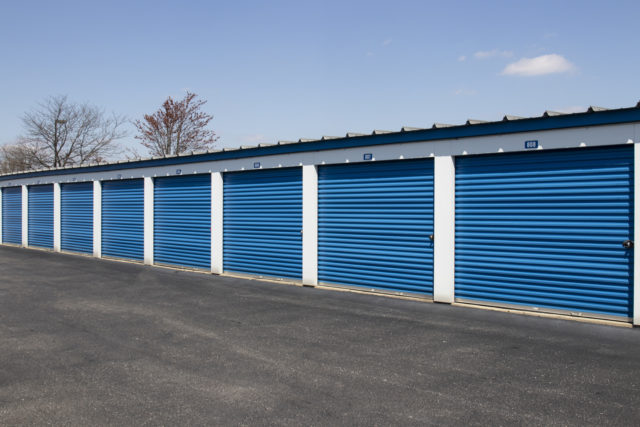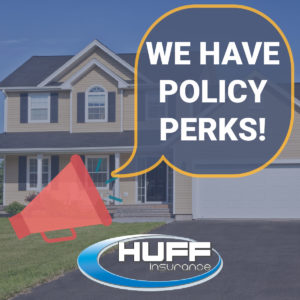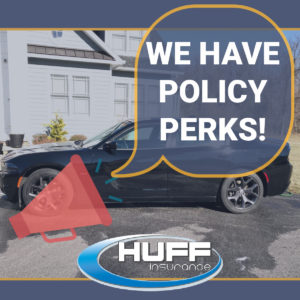Should college roommates get their own renters insurance?
 We get these questions dozens of times every year. Does my child need renters insurance while living at college? If so, should my child in college and their roommates each get their own renters insurance? Can my child and their roommates all be on the same renters insurance policy?
We get these questions dozens of times every year. Does my child need renters insurance while living at college? If so, should my child in college and their roommates each get their own renters insurance? Can my child and their roommates all be on the same renters insurance policy?
We have a blog titled Roommates and Renters Insurance which covers a similar topic as the one discussed here.
Every year, we receive questions about college roommates and renters insurance. Let’s dive into those questions and focus on the details here.
Does my child need renters insurance while away at college?
This is one that we always answer the question with a question of our own. Does you student live in on campus college housing or rent a place off campus?
Off Campus Apartment Or House Rental
If your child is renting an apartment off campus, then they should get their own renters insurance. In fact, most landlords will require it as part of their lease.
Most off campus apartments or houses involve having roommates.
The big question that comes up all of the time for this is:
Does each of the college roommates need their own separate renters insurance?
Our advice is always yes. Have each college roommate get their own renters insurance.
We wrote a blog about titles Roommates and Renters insurance. In this blog, I go over the insurance coverage issues that can come up by having non married roommates on one renters insurance policy.
There are some companies that will allow 3 or 4 unrelated college roommates to be on the same renters insurance policy.
Many may be thinking that this is a great idea. After all, one policy will be a lot cheaper for the group than all 4 of them buying their own policy. And they can add up the value of all of their personal property to make sure everyone’s belongings are insured.
So why is this a bad idea?
Let’s talk about the liability insurance part of the renters insurance policy.
The roommates buy a policy to cover their belongings and buy the $300,000 liability limits that the landlord requires. They should be OK right?
Well, maybe not.
 Let’s say that the roommates decide to host a college party on Friday night. Trust me, it happens. And at that party, a guest drinks a little too much and falls down the front steps as they are leaving to go home. They have a pretty serious injury you know the lawsuit is going to be on the way.
Let’s say that the roommates decide to host a college party on Friday night. Trust me, it happens. And at that party, a guest drinks a little too much and falls down the front steps as they are leaving to go home. They have a pretty serious injury you know the lawsuit is going to be on the way.
Three months later, the lawsuits comes in. That’s right, it is a plural for lawsuits. The injured party is suing each college roommate separately for $300,000.
The roommates think that everything is fine. After all the renters insurance has a $300,000 liability limit, so each college roommate should be covered for the $300,000 right?
That would be wrong. The $300,000 is a total per claim limit for the renters insurance policy. It does not apply per named insured. In essence, the total being sued for is $1,200,000, which is the $300,000 times 4.
Now if one of the college roommates decides to settle the lawsuit for $300,000 for themselves, then what is left for the others? The answer is $0. the liability limit for the claim is exhausted, so the other roommates would be responsible to pay for their own defense costs as well as any settlement that may be awarded.
Do you want to have your child in that position?
I know I would not.
We hear every year of a college student dying at a party due to drinking too much or experimenting with drugs. Imagine what the amounts of those lawsuits are for the college roommates who hosted the party.
For a few hundred dollars per year, we recommend getting your college student their own renters insurance policy.
After all, you are investing a lot of money every year for your child’s future by sending them to college. So why not spend a few hundred more dollars per year to protect that future should there be an unfortunate incident.
On Campus Dorm Room
If they live on campus in a dorm, then the answer is almost always no. They probably do not need their own renters insurance policy.
A standard homeowners policy will provide their liability insurance as long as their permanent residence is still with you. For their personal property, the homeowners insurance provides coverage for a limit of up to 10% of your personal property coverage that you have on your homeowners insurance.
If you have a homeowners insurance policy, it usually would be enough coverage. If you have a renters insurance or condo insurance policy, you need to make sure that the 10% is enough to cover the value of property your child has at their dorm. The personal property coverage limits on renters and condo policies are usually less than that of a homeowners insurance policy.
Since the college usually provides the furnishings for the dorm, 10% usually is enough to cover the child’s belongings in a dorm room. But it is still always best to make sure.
If you do not have any of these policies, then we would recommend that you get a renters insurance policy for your child while at college. This will protect their belongings and provide liability insurance for them. A lot goes on at college, so you want to make sure they are properly protected.
There could be a couple of ways to save on your auto insurance that could help offset this cost as well.
- Multi policy discount for renters insurance. If your insurance company allows you to place it on the same insurance package, you could be eligible for a discount.
- Good student discount. If your child is still on your auto insurance and is making a B average for grades, there could be a good student discount for you.
- Away at school discount. If your child’s school is more than 100 miles away and they do NOT have a vehicle with them, then there could be a discount for you.
- If they do have a vehicle with them, make sure the garaging address is updated with your auto insurance. Sometimes this could result in a lower rate for that particular auto. It could also cause the rate to go up if they are in a urban area. But either way, let the company know so you do not face any issues should there be a claim.
Call Huff Insurance
Huff Insurance is a Trusted Choice® Independent Insurance Agency her to help you. We understand everyone’s situation is different.
Fill out the quote form on this page or give us a call to discuss your situation.



 We know a lot of contractors who work for a company, but make extra money doing side jobs. We know this is a common thing to do in the contractor trade.
We know a lot of contractors who work for a company, but make extra money doing side jobs. We know this is a common thing to do in the contractor trade.
 Storage units are everywhere these days. Homeowners and renters all around are storing some of their belongings in these storage units. The question that comes up all of the time is: Are the belongings in the storage unit covered by
Storage units are everywhere these days. Homeowners and renters all around are storing some of their belongings in these storage units. The question that comes up all of the time is: Are the belongings in the storage unit covered by 
 We get these questions dozens of times every year. Does my child need renters insurance while living at college? If so, should my child in college and their roommates each get their own
We get these questions dozens of times every year. Does my child need renters insurance while living at college? If so, should my child in college and their roommates each get their own  Let’s say that the roommates decide to host a college party on Friday night. Trust me, it happens. And at that party, a guest drinks a little too much and falls down the front steps as they are leaving to go home. They have a pretty serious injury you know the lawsuit is going to be on the way.
Let’s say that the roommates decide to host a college party on Friday night. Trust me, it happens. And at that party, a guest drinks a little too much and falls down the front steps as they are leaving to go home. They have a pretty serious injury you know the lawsuit is going to be on the way.
 Is it possible to only pay for what you need for your car insurance?
Is it possible to only pay for what you need for your car insurance?
 Boats and Jetskis/Waverunners
Boats and Jetskis/Waverunners The answer is YES you can. The TV and radio commercials lead you to believe that policy perks for
The answer is YES you can. The TV and radio commercials lead you to believe that policy perks for  YES you can. We know there is a national insurance company touting their policy perks on TV and radio on a daily basis.
YES you can. We know there is a national insurance company touting their policy perks on TV and radio on a daily basis.